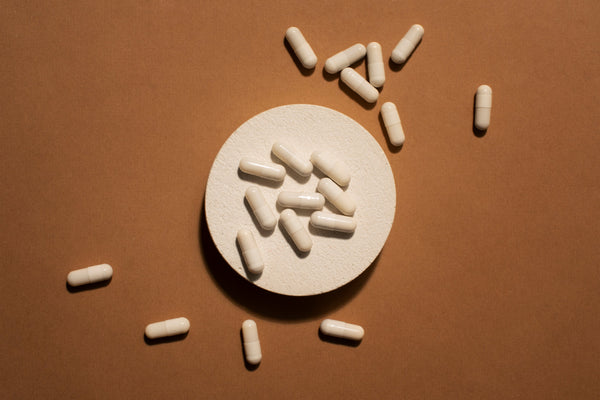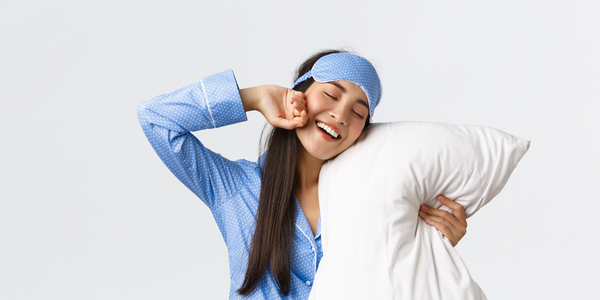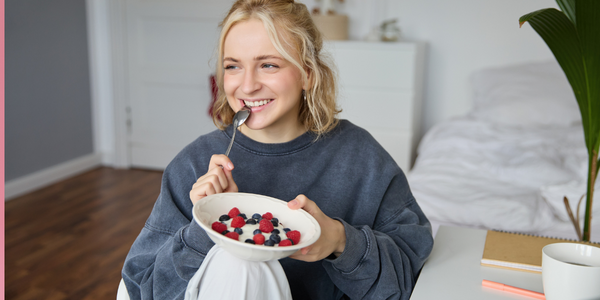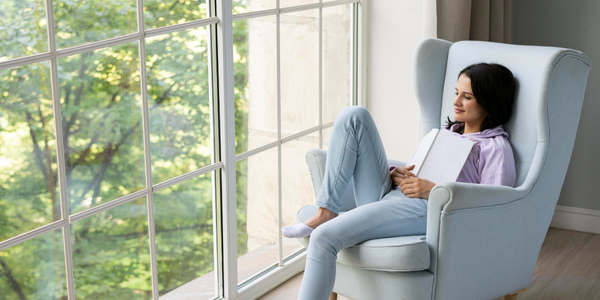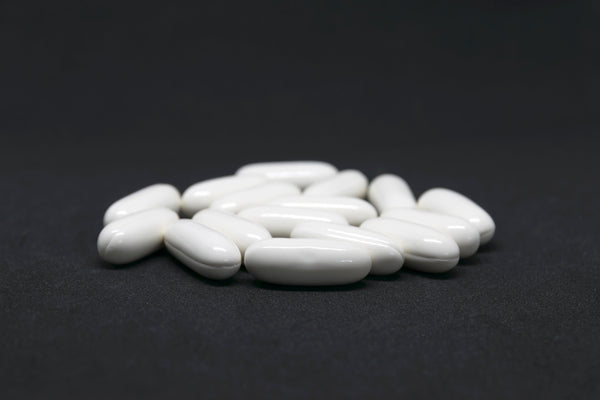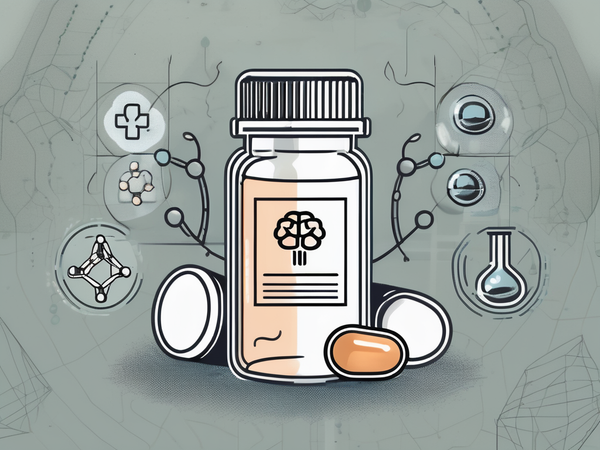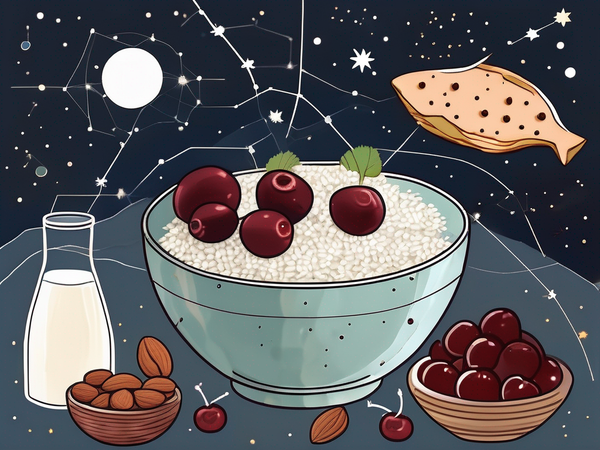Do you feel exhausted even after a good night’s sleep? Is your sleep disturbed? Does your partner often complain about your snoring or unusual breathing patterns at night? If you’ve answered yes to most of these questions, chances are that you have sleep apnea. A condition that makes you stop breathing at night. But don't worry, it's not as serious as it may sound, but having awareness and treating it on time can definitely have a positive effect on your health and help you avoid any serious complications in the future.
What is Sleep Apnea
During sleep apnea, the walls of the throat collapse and become narrow as we breathe. As the air travels through the narrowed area, the tissues in the throat start vibrating, creating a sound called snoring.
When walls of the throat collapse to an extent where insufficient air passes through the lungs, it is called hypopnea. Complete blockage of the air passage due to throat wall collapse is termed apnea. These partial or complete obstructions, also termed episodes or interruptions, may last anywhere between 10 seconds to 1 minute.
The brain sensing these interruptions causes arousal/awakening many times during sleep. Most people are unaware of these awakenings. However, these repeated interruptions can affect the quality of their sleep, leaving them sleepy or fatigued the next morning/day or even making it difficult for them to focus.
Types of sleep apnea
The most common types of sleep apnea are:
Obstructive Sleep Apnea (OSA):
This is the more prevalent form of sleep apnea. It occurs when the muscles in the throat relax excessively during sleep, causing a partial or complete blockage of the airway. As a result, the person experiences pauses in breathing until the brain signals the muscles to tighten and open the airway.
Central Sleep Apnea (CSA):
Unlike OSA, CSA is less common and involves a failure of the brain to send the appropriate signals to the muscles that control breathing. The airway isn't blocked, but the brain doesn't send the right signals to maintain normal breathing.
Complex Sleep Apnea Syndrome (Treatment-Emergent Central Sleep Apnea):
This is a combination of both OSA and CSA. It may occur when someone with OSA starts using a continuous positive airway pressure (CPAP) machine, and the condition evolves to include central sleep apnea.
Causes/Risk factors
Risk factors for sleep apnea include
- Obesity
- Being male
- Family history of Sleep Apnea
- Aging
- Male Gender
- Neck circumference greater than 17 inches (for men) or 16 inches (for women),
- Medical conditions such as high blood pressure and diabetes.
- Alcohol Abuse
- Sedative use
- Smoking
Signs & Symptoms
Sleep Apnea may be characterized by various signs and symptoms. However, do keep in mind that most of the signs & symptoms experienced at night may go unnoticed by the person suffering from sleep apnea. Their family member or bed partner may be able to detect the same. Let's look at some common signs & symptoms of sleep apnea.
- Loud Snoring
- Pauses in Breathing
- Choking or Gasping
- Restless Sleep
- Excessive Daytime Sleepiness
- Fatigued after a full night's sleep
- Morning Headaches
- Difficulty Concentrating
- Irritability and Mood Changes
- Dry Mouth or Sore Throat
- Frequent Nighttime Urination
- Nocturia
- Decreased Libido
Difference between sleep apnea and normal snoring
Not everyone who snores would have Sleep Apnea. Snoring when accompanied by one or more of the above symptoms could be a sign of Sleep Apnea and may need further evaluation by a doctor.
Treatment
Sleep apnea treatment depends on the type and severity of the condition. The two primary types of sleep apnea are obstructive sleep apnea (OSA) and central sleep apnea (CSA), and there is also a condition called complex sleep apnea syndrome, which is a combination of OSA and CSA. Treatment options may include lifestyle changes, medical interventions, and devices. Here are common approaches to treating sleep apnea:
Lifestyle Changes
- Losing Weight- Modest weight reduction can significantly improve the severity of obstructive sleep apnea, particularly in cases where excess weight contributes to airway obstruction.
- Cessation of Smoking-Smoking contributes to inflammation and fluid retention in the airway, exacerbating respiratory challenges during sleep. Thus, smoking cessation can lead to improvements in airway function and a reduction in the severity of sleep apnea symptoms.
- Avoiding Alcohol- Alcohol can relax the muscles in the throat and contribute to airway obstruction. Abstaining from alcohol, especially close to bedtime, can lead to improved sleep quality and a reduction in the frequency of breathing interruptions during sleep.
Continuous Positive Airway Pressure (CPAP)
This is a non-invasive method that includes a pump and a mask to be worn on the nose and/or on the mouth at night. This machine then sends increased air pressure into the airway, which holds open the throat muscles that have relaxed a lot during sleep.
Oral appliances
The use of dental devices or mouthguards, such as the MAS (Mandibular Advancement Splint) can help with sleep apnea. These devices do not really prevent the throat muscle from collapsing, but they pull the jawline to create more space in the throat to avoid interruptions.
Positional Therapy
Changing sleep positions may help in some cases. Sleeping on the side instead of the back can prevent the tongue and soft palate from collapsing into the throat. Certain commercial products (e.g., tennis balls sewn into pajama tops or t-shirts) are available on the market to help you stay in the right position during sleep to avoid sleep apnea. Positional therapy can also be considered one of the most effective snoring solutions.
Surgeries of the upper airways
Surgery can be considered as one of the treatment options if other treatments have not been successful. Certain surgeries of the upper respiratory tract that remove tissues from the throat help by creating more space for the airway to flow.
Combination therapies
Individuals with complex sleep apnea syndrome may require a combination of therapies, such as adjusting PAP settings, using adaptive servo-ventilation, or trying positional therapy.
Natural Remedies
Some individuals explore natural remedies to complement their sleep apnea management. Various herbal teas are recognized for their potential to enhance sleep. For instance, chamomile tea, known for its calming properties, is popular. Chamomile tea may have mild sedative effects, promoting relaxation and potentially improving sleep quality.
Similarly, herbal teas for sleep-containing ingredients like valerian root, passionflower, and lavender have been studied for their calming effects on the nervous system.
Melatonin for Sleep
Melatonin, a hormone naturally produced by the pineal gland, plays a crucial role in regulating the sleep-wake cycle. Some studies suggest that melatonin may have a positive impact on sleep quality and respiratory function. The relationship between melatonin supplements and sleep apnea, however, is not fully understood, and individual responses may vary. While some research suggests the potential benefits of melatonin in managing sleep apnea symptoms, others suggest that it may have the opposite effect.
Melatonin supplements may be considered part of a comprehensive approach to managing sleep disorders, especially for those experiencing difficulty falling asleep or maintaining a consistent sleep pattern. However, before initiating melatonin supplementation for sleep apnea, individuals should consult with healthcare professionals who can provide tailored advice based on the individual's health status and the specific nature of their sleep apnea.
Wrapping Up
Frequent pauses in breathing while you sleep are the hallmarks of a common sleep disease called sleep apnea. The general well-being of an individual can be greatly affected by this disorder, which has substantial health concerns. For those who suffer from this condition, it is essential to comprehend the causes of sleep apnea and investigate practical management techniques, such as snoring solutions, sleep apnea therapy, and natural treatments like melatonin supplements and chamomile tea.
References
https://www.mayoclinic.org/diseases-conditions/sleep-apnea/diagnosis-treatment/drc-20377636
https://www.mayoclinic.org/diseases-conditions/sleep-apnea/symptoms-causes/syc-20377631
https://www.nhlbi.nih.gov/health/sleep-apnea/treatment
https://www.betterhealth.vic.gov.au/health/conditionsandtreatments/sleep-apnoea
https://medlineplus.gov/ency/article/000811.htm
https://www.nhs.uk/conditions/sleep-apnoea/
https://www.tandfonline.com/doi/full/10.1080/01616412.2017.1315864













